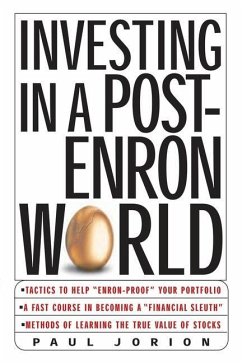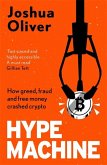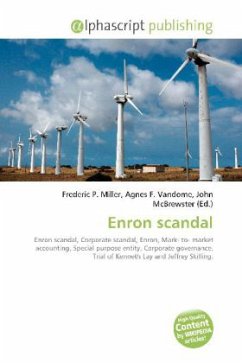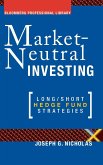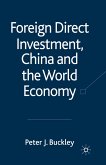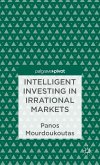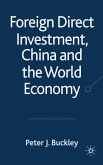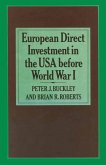Enron has spooked the financial markets like nothing since the failure of Long Term Capital Management and the Asian Crisis of the late 1990`s. Investors are dumping their shares of companies they felt were rock solid winners, as the "safety" of almost all stocks has been called into question. For example, in six trading days, Tyco (the conglomerate) lost 57 percent of its value, leaving even the most bullish Tyco analyst in shock. Even the bluest of blue chips, such as GE and IBM, have not been immune to the Enron "bug," and there is ample evidence that this is no 24-hour flu. "The Enron scandal has eroded the faith that workers place in our national institutions," declared USA Today in a recent (February 5th) front page business story." The headline of that story said it all: "Employees` New Motto: Trust No One." Investors are also starting to trust no one, and this creates a publishing opportunity tailor made for the McGraw-Hill Rapid-Response publishing program. This is not a narrative detailing the disaster, but instead a practical guide for helping investors ensure that their investments (e.g. in stock portfolios, mutual funds, 401k`s) are as "Enron-free" as possible. But since there was so much that went wrong with Enron (e.g. malfeasance, greed, cooking the books), how can investors be sure that an "Enron-like" scandal won`t touch their investments? While there are no guarantees, there are ways to minimize risk and financial exposure to similar occurrences: - Never overload the percentage of any portfolio with one stock: diversify! - Do your homework: you do not need to be a financial genius to read/interpret financial statements, but you do need to know what to look for (read, inquire, find out about company`s true value). - Watch for Enron symptoms, such as an abundance of debt (e.g. Tyco), "aggressive accounting," etc. - Stick to what/who you know: Brand name equities (e.g. Disney) are safer than lesser-knowns. - If you buy equities - buy the whole market in the form of an S&P 500 Fund or a Total Market Fund. In the wake of the single largest bankruptcy in history, investors of all shapes and sizes need the tools that will allow them to determine for themselves if they are holding safe investments. Investing in a Post-Enron World will likely be the first Enron book specifically for investors, and will be carefully developed so that it is both highly pragmatic and accessible. Ultimately, what will determine the book`s success is its timeliness and its execution. The bottom line is this: while there are no ways to be 100 percent sure that Enron will not repeat itself, there are some very specific things investors can---and must---do, to minimize their exposure to such an event. This book will present that information in a step-by-step fashion.
Hinweis: Dieser Artikel kann nur an eine deutsche Lieferadresse ausgeliefert werden.
Hinweis: Dieser Artikel kann nur an eine deutsche Lieferadresse ausgeliefert werden.

